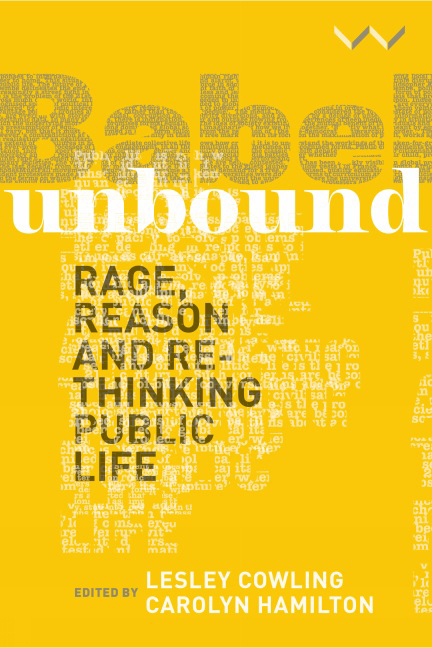Book contents
- Frontmatter
- Contents
- Acknowledgements
- Introduction
- Chapter 1 Rethinking Public Engagement
- Chapter 2 Tracing Public Engagements in Visual Forms
- Chapter 3 Media Orchestration in the Production of Public Debate
- Chapter 4 Fluid Publics: The public-making power of hashtags in digital public spaces
- Chapter 5 ‘Now We See Him, Now We Don’t’: The media and the ‘Black Pimpernel’
- Chapter 6 Archive and Public Life
- Chapter 7 Iconic Archive: Timbuktu and its manuscripts in public discourse
- Chapter 8 The Politics of Representation in Marikana: A tale of competing ideologies
- Chapter 9 Art-Rage and the Politics of Reconciliation
- Chapter 10 Anger, Pain, and the Body in the Public Sphere
- Contributors
- Index
Chapter 4 - Fluid Publics: The public-making power of hashtags in digital public spaces
Published online by Cambridge University Press: 10 September 2020
- Frontmatter
- Contents
- Acknowledgements
- Introduction
- Chapter 1 Rethinking Public Engagement
- Chapter 2 Tracing Public Engagements in Visual Forms
- Chapter 3 Media Orchestration in the Production of Public Debate
- Chapter 4 Fluid Publics: The public-making power of hashtags in digital public spaces
- Chapter 5 ‘Now We See Him, Now We Don’t’: The media and the ‘Black Pimpernel’
- Chapter 6 Archive and Public Life
- Chapter 7 Iconic Archive: Timbuktu and its manuscripts in public discourse
- Chapter 8 The Politics of Representation in Marikana: A tale of competing ideologies
- Chapter 9 Art-Rage and the Politics of Reconciliation
- Chapter 10 Anger, Pain, and the Body in the Public Sphere
- Contributors
- Index
Summary
… hereby tongues are known, judgement increaseth, books are dispersed, the Scripture is seen … times be compared, truth discerned, falsehood detected … and all … through the benefit of printing. Wherefore I suppose, that either the pope must abolish printing or he must seek a new world to reign over; for else, as this world standeth, printing doubtless will abolish him.
— John Foxe, ‘The Invention and Benefit of Printing’[Digital technology] can flatten organizations, globalize society, decentralize control, and help harmonize people … there is a parallel … between open and closed systems and open and closed societies. In the same way that proprietary systems were the downfall of once great companies, overly hierarchical and status-conscious societies will erode.
— Nicholas Negroponte, ‘Being Digital’John Foxe, one of the first best-selling authors of the modern printing age, was convinced that printing would end the power of the papacy, just as Nicholas Negroponte, one of the champions of the digital age, believed that the Internet would challenge the nation state and other hierarchies. Three centuries apart, they were both writing at times of revolutionary changes in communications technologies. The certainties they share with regard to the direct social and political consequences of these changes appear, from the perspective of the twenty-first century, unjustified. The pope is still with us, as is the nation state. Changes in publicmaking, by which I mean how ideas are made public and how they circulate, and how these changes transform political power, are often complex, subtle and do not move in a single direction. However, printing did change the processes of publicmaking in the seventeenth century, just as digital communications are changing public-making in the twenty-first century.
In this chapter, I discuss some of these sometimes subtle changes in publicmaking, examining one recent and prominent example of digital public engagement in South Africa: the #FeesMustFall campaign of university students demanding free education. The new (and newly visible) practice of adding hashtags to online communications is a complex act of public-making. It is highly fluid compared to the previously dominant processes of mediated public-making. The Internet, including social media, is sometimes described as if it is a ‘space’ distinct from and in contrast to other public spaces – a ‘virtual sphere’. However, this is to misunderstand the practices of digital public-making. Public engagements online take place in a constantly fluid set of digital public spaces.
- Type
- Chapter
- Information
- Babel UnboundRage, Reason and Rethinking Public Life, pp. 88 - 104Publisher: Wits University PressPrint publication year: 2020



